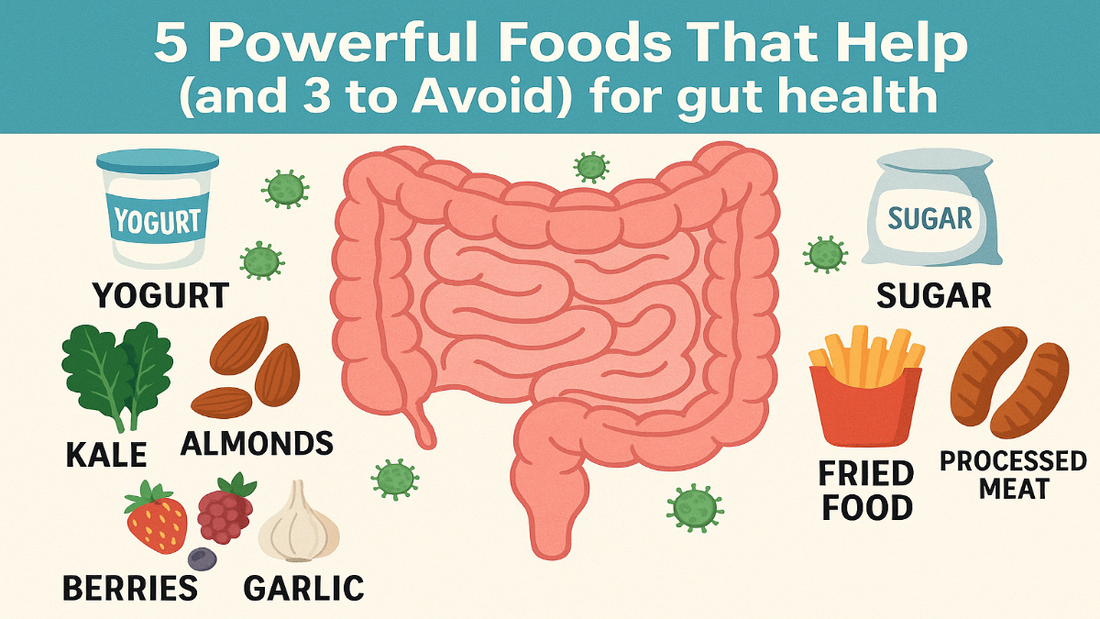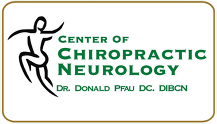
Heal Your Gut with Food: 5 Powerful Foods That Help (and 3 to Avoid)
Share
Food Is Information—Not Just Fuel
Every bite you take sends a message to your body. And nowhere is that message clearer than in your gut. Whether you're feeding inflammation or fighting it, your diet is either helping or hurting your digestion.
Dr. Donald Pfau has seen firsthand how the right foods can repair the gut lining, rebalance the microbiome, and reboot digestion. Here are his top 5 gut-healing foods—and 3 that sabotage your progress.

5 Gut-Healing Power Foods That Actually Work
Struggling with leaky gut, bloating, IBS, or poor digestion? Healing starts with what you eat.
These 5 gut-healing superfoods are packed with nutrients that repair the gut lining, reduce inflammation, and support a healthy microbiome—naturally. From collagen-rich bone broth to probiotic-packed fermented vegetables and omega-3-rich wild-caught fish, these foods deliver real digestive results without gimmicks.
Learn exactly how to use each one to support gut repair, improve regularity, and feel better from the inside out—one forkful at a time.

FAQ – Gut-Damaging Foods & Healthy Swaps
What foods should I avoid to protect my gut health?
Avoid foods that inflame or disrupt your gut lining and microbiome. The top culprits include:
- Refined sugar – Feeds bad bacteria and yeast
- Gluten (especially from processed wheat) – Linked to increased gut permeability
- Industrial seed oils – Like canola, soybean, and corn oil, which promote inflammation
What should I eat instead of refined sugar?
Swap refined sugar for natural, gut-friendly alternatives like:
- Raw honey (in small amounts)
- Berries
- Monk fruit or stevia (for low glycemic impact)
These sweeteners are less likely to feed harmful microbes or spike blood sugar.
Is gluten really that bad for your gut?
For many people, yes. Gluten—especially from modern, highly processed wheat—can trigger inflammation and gut permeability, often referred to as "leaky gut." Try gluten-free options like quinoa, rice, or certified GF oats instead.
What cooking oils are best for gut health?
Avoid high-omega-6, oxidized oils like canola, soybean, and corn oil.
Instead, use:
- Extra virgin olive oil
- Avocado oil
- Coconut oil
These healthier fats are anti-inflammatory and much gentler on the gut lining.
Wondering what to eat during your gut repair journey?
These nourishing meals are designed to soothe inflammation, support digestion, and feed beneficial microbes—without overwhelming your system.
- Breakfast: No carbs. This means no fruit, no cereal, no juice, no toast, no oatmeal, no rice cakes. You should avoid milk as well. Eat protein and vegetables. You can have collagen protein, greens powder, and prebiotic fiber.
- Lunch: Wild-caught salmon over sautéed spinach with a side of sauerkraut
- Dinner: Bone broth-based veggie soup with quinoa and root vegetables
- Snacks: Coconut yogurt with berries or cucumber slices with hummus
Food + Supplements = Real Healing
Dr. Pfau recommends pairing gut-friendly meals with targeted supplements for faster results:
- GI Repair Formula – To heal and seal the gut lining
- Probiotic – To restore healthy gut flora
- DigestiveWell+ – To support nutrient absorption and reduce bloating
- Plantzyme Support (Vegan) – To support nutrient absorption and reduce bloating
Nourish your gut daily—for real, lasting results.
Patient Experience
“I changed my diet and started the gut protocol—my skin cleared, digestion improved, and my brain fog lifted.”- Melissa R.
“I didn’t realize how much food was affecting me until I removed gluten and sugar. Now I feel like I can breathe again.”- Nate C.
Build Your Gut-Healthy Lifestyle
Start with one change this week. Add one healing food. Remove one inflammatory trigger.
Pair these foods with professional-grade supplements for lasting change
Consistency, not perfection, is what gets results.
